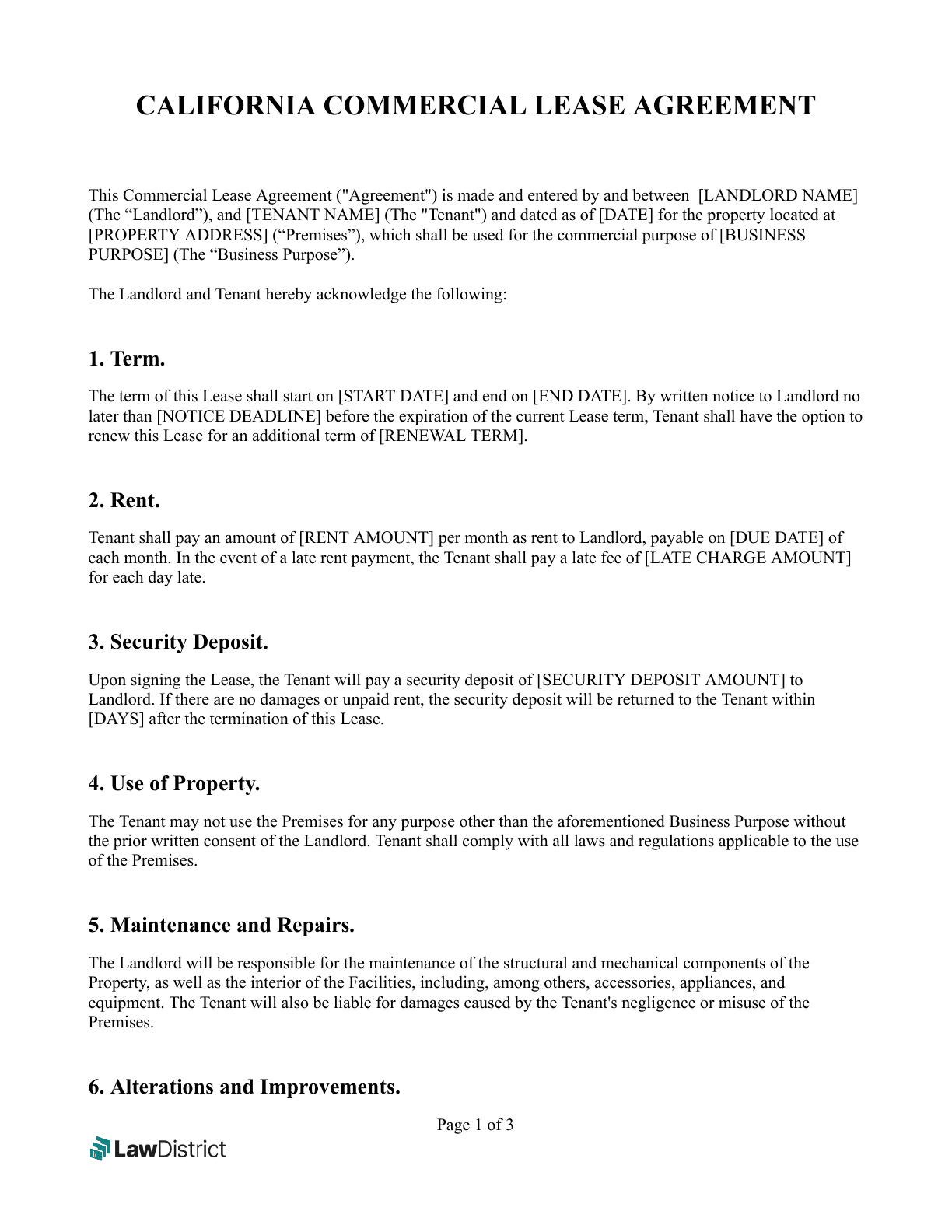California Commercial Lease Agreement Form
A California Commercial Lease Agreement is a legally binding contract between a landlord and a business tenant. This legal document details the terms and conditions that both parties agree to when leasing commercial property in the state of California.
These agreements are different from Residential Lease Agreements. Commercial Lease forms are used when renting commercial spaces, as opposed to renting out private residential property.
The Commercial Lease Form can be used for several different types of property and businesses. They are often used to rent out retail space, offices, or industrial facilities.
It’s important that both parties clearly understand their rights and obligations under California law, as these contracts can be long-term.

Required Disclosures in California Commercial Lease Agreements
Under California law, landlords must provide certain disclosures to potential commercial tenants. This helps guarantee transparency between both parties.
You’ll need to disclose the following before leasing your commercial property:
- Accessibility inspection: The lease agreement must state if the property has been inspected by a Certified Access Specialist (CASp). This must be done to determine accessibility compliance for individuals with disabilities. It must be clearly stated in the lease if this inspection was conducted, and whether it met the accessibility standards.
- Hazardous materials: If the property was constructed before 1979, landlords must disclose any asbestos-containing materials. The location and any safety procedures must also be disclosed. Tenants must also be notified of any materials known to cause cancer, birth defects, or other reproductive harm.
- Utility sharing: Landlords are required to disclose how utility costs are allocated if multiple tenants are sharing the same utility meters. This disclosure promotes clear billing practices and helps avoid disagreements about utility expenses.
- Hazardous zone: It’s also necessary to disclose if the commercial property is located in a hazardous zone. This can include areas prone to earthquakes, fire, or flooding.
Rent Grace Period
There is no legally required rent payment grace period for California Commercial Leases. Any grace period (and its length) are usually specified in the lease form.
A rent grace period gives tenants extra time to pay rent after the due date without having to worry about late fees. Any agreed-upon grace period should be clearly stated in the lease to prevent confusion between the landlord and tenant.
Security Deposits
Security deposits serve as financial protection for California landlords. The security deposit can be used to pay for potential damages, or make up for unpaid rent. The deposit can also be taken if the tenant breaches the terms of the lease.
Here are some important factors to consider:
- Amount: Commercial security deposits in California are not capped by law. The tenant and landlord typically decide on a deposit amount through negotiation. They usually take into account the condition of the property, the duration of the lease, and the tenant’s credit history.
- Non-refundable deposits: As long as it’s clearly stated in the Lease Agreement, Californian commercial landlords may stipulate non-refundable deposits.
- Return of deposit: When drafting a Commercial Lease, it’s required to state the security deposit return timeline. There is no statutory requirement for commercial landlords to provide an itemized statement of deductions, unless the lease explicitly requires it. Both parties should agree on and document these terms to prevent misunderstandings.
Helpful Resources
Here are some resources that can help you better understand California Commercial Space Lease Agreements: